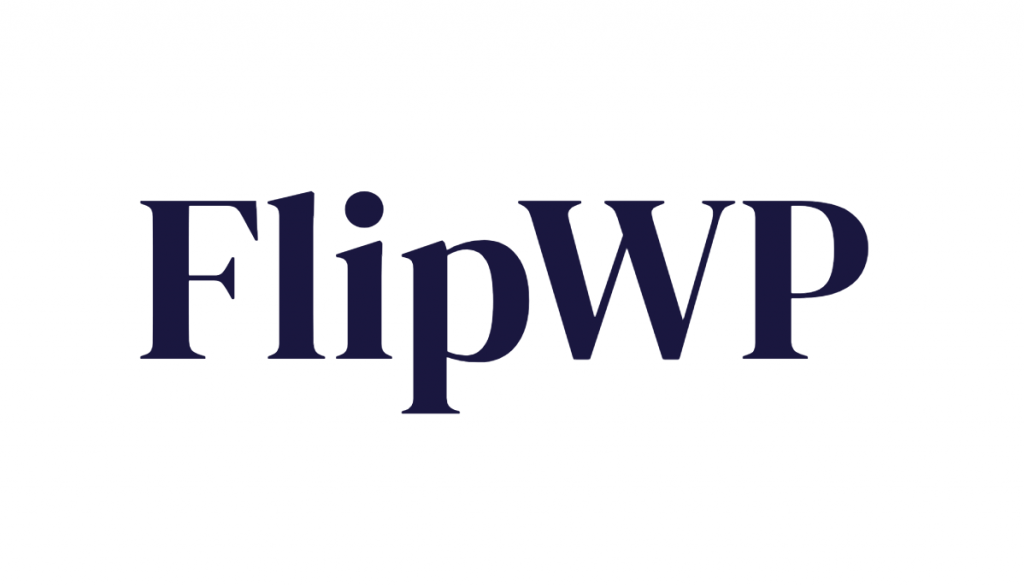Alex Denning and Iain Poulson launched FlipWP today, a private marketplace to facilitate acquisitions for WordPress companies. WP Engine’s recent published research, which estimates the WordPress economy at $596.7B, has inspired confidence in the ecosystem. An increasing number of acquisitions announced over the past month is also reinforcing the need for a more centralized marketplace for these opportunities.
“Iain and I started talking a lot more regularly a year ago, when he started Plugin Rank,” Denning said. “He was getting people asking him for acquisition opportunities, and with Ellipsis I was getting clients asking for help evaluating acquisitions and with sales. There was no go-to marketplace, so in March we started talking about working together on solving the problem.”
Sellers can list on FlipWP privately for free and buyers handle their own sales, with no exclusivity obligation. The site doesn’t charge for listings and it doesn’t take commission from any sales. The $299 membership for buyers opened today, which offers access to FlipWP’s email list of acquisition opportunities.
Listings include business data, such as ARR and monthly profit, the asking price, and commentary about the opportunity from FlipWP. Buyers can reach out directly to sellers with no middleman involved.
In the past, finding a buyer for a WordPress company required having a wide network, knowing the right people, or posting on various marketplaces like Flippa and MicroAcquire.
“Every week I was hearing about another acquisition, getting an email from someone looking to buy a plugin business, or emails from developers asking the best way to sell,” Poulson said. “The need for a WordPress specific acquisition marketplace became more and more apparent.”
The Acceleration of Acquisitions in the WordPress Ecosystem
There is a lot of buzz on Twitter lately, questioning whether an active acquisition market is a healthy development. Some have expressed concern about small, independent tools getting bought up by larger companies and worry that consolidation will lead to lack of competition.
Eric Karkovack wrote in a post speculating on the future of plugin acquisitions, entertaining the possibility that “a few big players simply set the rules for everyone else to follow:”
Frankly, it’s becoming a lot harder for solo entrepreneurs or small development shops to manage a popular plugin. Supporting a large userbase while also focusing on the future could become overwhelming.
Thus, it’s not surprising to see that some of these products are being sold off to larger firms. We saw something similar happen with internet providers back in the early 2000s. The more mature the market, the harder it became for a small company to carry out its mission. Pretty soon, they were just about all bought up by corporate interests.
While that may not fully reflect the case here, it seems to at least be trending in that direction…
It will take some time. But there might come a day when a typical business website runs plugins from perhaps only a few big development houses.
Not everyone shares this same bleak outlook on the potential effects of consolidation. During Matt Mullenweg’s Q&A at WordCamp Europe, Brian Krogsgard asked what these acquisitions mean for the health of the WordPress economy. Mullenweg sees it as a positive development that should spur more creation:
It’s a really exciting time because it feels so robust and healthy. The fact that these exits are happening then creates more incentives for something new to be created, either from the alumni of these companies or by people that know that they can get something to a certain point and sell it to one of these companies. It’s actually not very different from Google and Yahoo and all of these companies that buy up lots of startups. Guess what, that created way more startups, some of which became Airbnb and Uber and challenged the tech giants. That’s the beauty of how the ecosystem works.
Poulson and Denning are also optimistic that FlipWP will open up more opportunities for business owners to get connected and accelerate the process for all parties involved.
“The acquisition trend is indicative of WordPress maturing,” Denning said. “If WP Engine thinks the WordPress economy is worth $597 billion dollars and the biggest public companies in WordPress are worth ~$20bn, we’re about $577bn short. A lot of that number will be made up through the small businesses we see getting sold, and until now they’ve not had a way of selling other than ‘post it on Slack.’ If that study is right, then the one-most-weeks rate of acquisitions might actually be significantly too low, and those businesses are being undervalued, too. We can make it much easier for buyers to find quality WordPress listings, and we can make it much easier for sellers to get the best price.”

